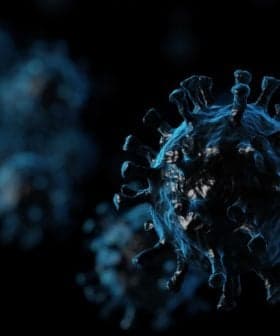Apple Peels, Red Grapes, Turmeric Help Prevent Growth of Prostate Cancer in Mice
A study identified a combination of nutrients from foods that are more effective against prostate cancer than existing drugs if they're ingested in concentrations that exceed those found in a healthy diet.
 5.8K reads
5.8K readsResearchers at the University of Texas at Austin found that apple peels, red grapes, and turmeric contain compounds that can help prevent the growth of prostate cancer, with their combined effect being greater than when used separately. The study, published in Precision Oncology, demonstrated that these natural agents have potential anti-cancer properties and can inhibit tumor growth in mice without causing toxicity.
Researchers at the University of Texas at Austin identified apple peels, red grapes and turmeric as natural agents containing compounds that may help prevent the growth of prostate cancer. Their combined effect proved greater than their separate effects.
These nutrients have potential anti-cancer properties and are readily available.
Prostate cancer, the most common malignancy afflicting men, develops slowly and often without any symptoms in the early stages. According to the American Cancer Society, 161,360 men in the U.S. will be diagnosed with the disease this year, which will result in 26,730 fatalities.
The study published in Precision Oncology used a novel technique to identify plant-based compounds that can fight prostate cancer. Instead of testing a single agent at a time like most studies, it screened numerous agents to ascertain what combinations would be most effective.
“After screening a natural compound library, we developed an unbiased look at combinations of nutrients that have a better effect on prostate cancer than existing drugs,” said corresponding author Stefano Tiziani, assistant professor in the Department of Nutritional Sciences and Dell Pediatric Research Institute at UT Austin. “The beauty of this study is that we were able to inhibit tumor growth in mice without toxicity.”
In recent years, some cancer research has indicated that compounds in green tea, turmeric and apple peel can reduce inflammation, which is one of the risk factors for cancer. People with a disorder that causes chronic inflammation, such as obesity, autoimmune disease or a long-standing infection, have an elevated cancer risk due to the damage the condition perpetrates on normal cells.
The new study was conducted in two phases: First, 142 natural compounds were tested on mice and human prostate cancer cells in test tubes to determine which ones inhibited the malignancy’s growth. The agents were tested both singly as well as in combination with others.
Next, the most promising ones were tested on mice with prostate cancer. These included rosemary; resveratrol, a compound found in red grapes; curcumin, the part of the spice turmeric that imparts the yellow color; and ursolic acid, a compound found in apple peels.
“These nutrients have potential anti-cancer properties and are readily available,” said Tiziani. “We only need to increase concentration beyond levels found in a healthy diet for an effect on prostate cancer cells.”
How do these three foods work together? When the ursolic acid in the apple peel combines with either resveratrol or curcumin, it prevents cancer cells from consuming a nutrient they need to grow – glutamine. This strategy of blocking the uptake of glutamine with nutrients that are readily available in the diet is most beneficial, as it involves no side effects.
The research shows the role of diet in fighting cancer. People tend to feel that their risk of developing cancer is determined mostly by genetics; however, diet is critical because it dictates gene expression. Ajay Goel of the Baylor Scott and White Research Institute and Charles A. Sammons Cancer Center explained the idea to Olive Oil Times.
“This is a fascinating study that builds upon the concept that ‘we are what we eat,’ since our diets have a profound influence on who and what we are. We have no control on our genetics, our DNA; but we have complete control on every single thing we put in our mouth on a daily basis,” Goel said.
“As shown in this study, active principles in apples, grapes and turmeric have potent anti-cancer activity for prostate cancer; but more importantly, there is a huge degree of synergism between these compounds. It demonstrates that although individual food components may be very potent, they work best when ingested together. This shows the value of eating a well-balanced and healthy diet, especially one that includes many fruits, vegetables, herbs etc.
“Such changes are relatively easy to incorporate into our daily life and can alter how we look at the disease process. A nutritious diet can help prevent illness, delay its onset or even produce therapeutic benefits,: he added.
“At the end of the day, it is not our genetics that dictates the disease burden; but it is our epigenetics that controls gene expression, which is directly controlled by dietary and lifestyle factors.”









